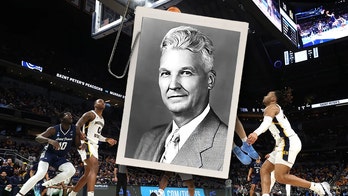Get ready to dive into the captivating etymological journeys of these popular idioms. Discover the intriguing stories behind "rookie mistake," "par for the course," and "a run for their money," all tracing their roots to the dynamic world of sports.

The English language is a boundless tapestry of words, each carrying its own unique narrative. Over time, certain word combinations have coalesced into phrases that have become ingrained in our everyday lexicon, transcending their literal meanings to convey a myriad of emotions and experiences. These idioms, often born out of specific contexts, offer glimpses into the cultural nuances and historical events that have shaped our language.
In this article, we embark on an exciting expedition into the origins of three captivating idioms with deep-rooted connections to the world of sports: "rookie mistake," "par for the course," and "a run for their money." Each phrase possesses a fascinating backstory that sheds light on its metaphorical usage in contemporary language.

In the realm of sports, a "rookie" typically refers to an athlete in their first season or year of play. The phrase "rookie mistake" is often employed to describe a misstep made due to a lack of knowledge or experience. For instance, a novice driver might inadvertently bump into curbs while attempting to navigate turns, leading to the moniker "rookie mistake."
The origin of this idiom remains shrouded in mystery, but the term "rookie" is believed to have originated from the word "recruit," a term used in the 1860s to designate new members of the military or law enforcement. The Oxford English Dictionary defines "rookie" as "a new recruit, especially in an army or police force," with an extended usage of "a novice in a particular field or profession."

Golf enthusiasts may be familiar with the term "par for the course," but its usage has extended far beyond the greens, becoming a common idiomatic expression. The phrase originates from the sport of golf, where "par" refers to the number of strokes a skilled golfer is expected to take to complete a hole.
In its everyday usage, "par for the course" has taken on a figurative meaning, implying that a certain occurrence or outcome is considered normal or expected. For example, an individual might acknowledge a mistake by stating it's "par for the course," suggesting that the error was inevitable or commonplace.

The idiom "a run for their money" is believed to have emerged from the adrenaline-fueled world of horse racing, where spectators wager on the speed and performance of horses. The phrase denotes a situation where someone or something poses a significant challenge, making victory far from guaranteed.
Imagine two runners locked in a fierce race. One runner might give the other "a run for their money," indicating that they are determined to win and will not surrender without a valiant effort. The first recorded usage of this phrase is believed to date back to 1874, as documented in "The Slang Dictionary."

The intricate origins of these sports idioms not only provide a glimpse into the etymological evolution of language but also offer insights into the cultural significance of sports in our society. From the camaraderie of the playing field to the thrill of competition, these idioms have become an integral part of our vocabularies, enriching our conversations with vivid imagery and historical context.










